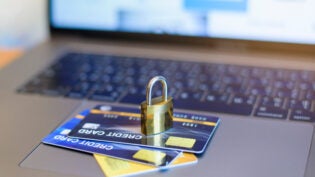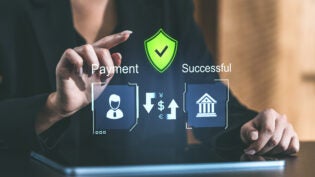
The global shift toward a cashless society has transformed the way financial transactions occur. With the increasing use of digital wallets, online banking, and contactless payments, the reliance on physical money is steadily decreasing.
While this evolution offers greater convenience, it also introduces new challenges for managing credit responsibly. As transactions become instantaneous and less tangible, individuals must adopt disciplined financial habits to avoid falling into debt traps. Strategic credit management is no longer optional; it is essential for maintaining financial health in an environment dominated by digital transactions.
Building Strong Financial Habits
Maintaining financial discipline in a cashless society begins with cultivating strong financial habits. Budgeting remains fundamental, even though digital transactions can sometimes mask spending patterns. Setting a monthly budget, tracking every expense, and reviewing financial statements regularly help create awareness of spending behaviors. Mobile banking apps often provide real-time transaction histories, enabling users to monitor their finances with greater accuracy.
Automating bill payments is another prudent practice. In a cashless economy, missing a payment can have immediate repercussions on one’s credit score. Setting up automatic payments ensures that obligations are met on time without the need to remember due dates manually. Additionally, it reduces the chances of late fees and maintains a positive payment history, which is critical for a strong credit profile.
Understanding Credit and Loans in a Digital Economy
Credit has become a critical element in modern economies, particularly in a landscape where cash usage is declining. Digital payments often blur the lines between spending actual cash and using borrowed money, making it easier to accumulate debt without immediate realization.
The role of loans, both personal and revolving credit lines, is expanding as consumers increasingly rely on financing to manage purchases, emergencies, or investments.
In this context, tracking one’s financial standing becomes indispensable. Nowadays, free credit monitoring services have emerged as valuable assets for individuals aiming to maintain a healthy credit profile.
These services provide timely alerts about changes in credit reports, helping users detect potential issues early and take corrective measures before problems escalate. By utilizing such tools, individuals can foster greater awareness of their credit activity, which is particularly vital in a world where digital transactions happen at lightning speed.
Leveraging Technology for Smarter Credit Management
The proliferation of financial technology solutions offers consumers powerful tools to manage their credit more effectively. Mobile apps that categorize spending set savings goals, and send alerts for budget breaches empower individuals to stay in control of their finances. These tools bridge the gap between convenience and accountability, allowing users to enjoy the benefits of a cashless society without compromising their financial health.
Moreover, digital platforms that facilitate peer-to-peer lending, investment opportunities, and crowdfunding have expanded financial options. However, they also require a cautious approach. Understanding the terms and conditions associated with digital lending and ensuring that the repayment schedules are manageable is essential. Before engaging with any new financial platform, thorough research and careful consideration of personal financial capacity should guide decision-making.
Identity theft and fraud pose significant risks in a cashless economy. Using strong passwords, enabling two-factor authentication, and monitoring account activity regularly are crucial practices for safeguarding financial information. Being proactive about cybersecurity helps protect against unauthorized transactions that can have long-lasting impacts on creditworthiness.
Responsible Credit Card Usage
Credit cards offer unparalleled convenience and can be valuable tools when managed correctly. However, in a cashless environment where tapping a card replaces the physical act of handing over money, it becomes easier to overspend. Establishing firm rules for credit card usage is necessary to maintain control.
Limiting credit card use to planned purchases within an established budget helps prevent impulsive spending. Paying the balance in full each month eliminates interest charges and reinforces positive credit behaviors. Maintaining a low credit utilization ratio—preferably under 30% of the available limit—enhances credit scores and reflects responsible credit management.
Consumers should also be selective about opening new credit accounts. While enticing promotional offers may be appealing, each application results in a hard inquiry on a credit report, which can temporarily lower scores. Opening multiple accounts in a short period can signal financial instability to lenders, potentially affecting loan approval chances in the future.
Preparing for Financial Emergencies
Despite careful planning, unexpected expenses can arise. In a cashless society, having access to emergency funds is more critical than ever. A well-funded savings account provides a buffer against financial shocks, reducing the need to rely on credit during crises.
Building an emergency fund equivalent to three to six months’ worth of living expenses offers security and peace of mind. Contributing to this fund consistently, even in small amounts, ensures gradual growth over time. Prioritizing savings alongside debt repayment creates a balanced financial strategy that can withstand unforeseen circumstances without jeopardizing credit health.
Insurance coverage also plays a role in financial preparedness. Health, auto, and home insurance policies can prevent large, unplanned expenditures from depleting savings or forcing reliance on credit. Reviewing coverage periodically ensures that it aligns with current needs and provides adequate protection.
Educating Oneself About Financial Products
In a constantly evolving financial landscape, education is an invaluable asset. Understanding the features, risks, and benefits of different financial products enables better decision-making. For instance, distinguishing between fixed-rate and variable-rate loans, recognizing predatory lending practices, and knowing how interest rates impact total repayment amounts can make a significant difference in long-term financial outcomes.
Participating in financial literacy programs, reading reputable financial publications, and consulting with financial advisors when necessary, empowers individuals to navigate the cashless economy intelligently. Staying informed about changes in banking regulations, emerging financial technologies, and credit reporting standards further strengthens financial resilience.
Avoiding financial jargon and focusing on practical knowledge ensures that individuals can apply what they learn effectively. Practical application, rather than theoretical knowledge alone, leads to tangible improvements in credit management practices.
Mastering the art of managing credit in a cashless society demands a proactive and informed approach. By embracing strong financial habits, leveraging technology wisely, using credit responsibly, preparing for emergencies, and continuously educating themselves, individuals can thrive in a digital economy without compromising their financial well-being.
337 Views













